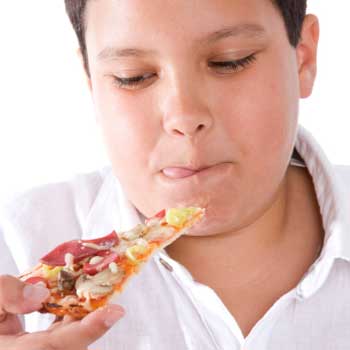If you think overweight teens are in their state of health because of their out-of-control calorie intake, think again. A new study from the University of North Carolina of Medicine suggests that older children who are overweight may be consuming fewer calories than their peers at healthier weights.
To conduct the study, researchers analyzed the diet reports of more than 19,000 children ages 1 to 17. They categorized the children based on weight, and children under the age of 2 were categorized based on weight-for-length percentile.
Researchers then looked at the correlation between age and weight category on calorie intake. What they found was that younger, overweight children consume more calories than their healthier peers. However, in the case of older children, those who are overweight actually consume fewer calories than their healthier peers.
These findings led researchers to believe that children who become overweight at a young age tend to remain overweight, regardless of calorie intake fluctuation.
“So, for many children, obesity may begin by eating more in early childhood,” said lead study author and UNC assistant professor Asheley Cockrell Skinner, PhD. “Then as they get older, they continue to be obese without eating any more than their healthy weight peers. One reason this makes sense is because we know overweight children are less active than healthy weight kids. Additionally, this is in line with other research that obesity is not a simple matter of overweight people eating more – the body is complex in how it reacts to amount of food earn and amount of activity.”
Overall, it seems the solution may not be to simply encourage overweight teens to cut back on calories to slim down. This is because our bodies tend to react and sometimes adapt to our diets, meaning the answer may be much more complicated than eating less. Skinner proposes we need a different strategy when it comes to childhood weight loss, seeing as our current approach isn’t working.
“It makes sense for early childhood interventions to focus specifically on caloric intake, while of those in late childhood or adolescence the focus should instead be on increasing physical activity, since overweight children tend to be less active,” she said. “Even though reducing calories would likely result in weight loss for children, it’s not a matter of wanting them to eat more like healthy weight kids – they would actually have to each much less than their peers, which can be a very difficult prospect for children, and especially, adolescents.”
Perhaps instead of focusing so heavily on calorie intake, the shift should come back toward eating healthy, whole foods. We all know that a banana is healthier for you than a snack size bag of chips, even if the chips have fewer calories. Little tips like these could go a long way in educating today’s youth on how to achieve and maintain a healthy weight for a lifetime.
Also Read:
Eating Disorders Among Youth on the Rise, Parents Must Intervene
Jillian Michaels Announces Return to Biggest Loser with Big Twist [VIDEO]
School Food Laws May be Reducing Children’s Weight
Source: Counsel and Heal
